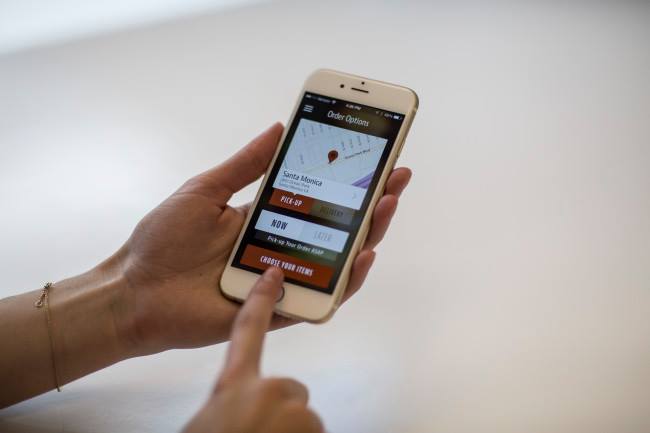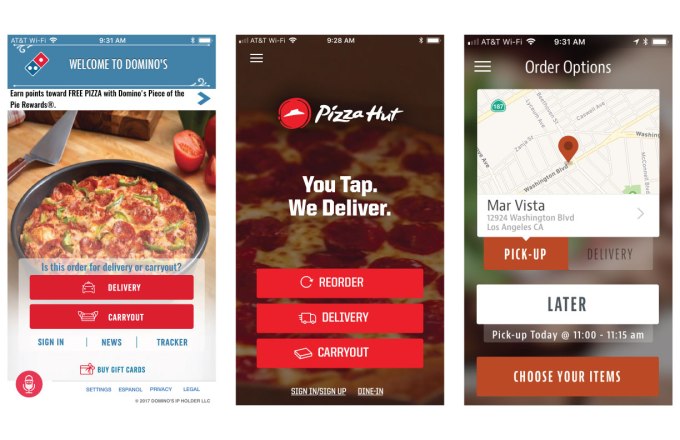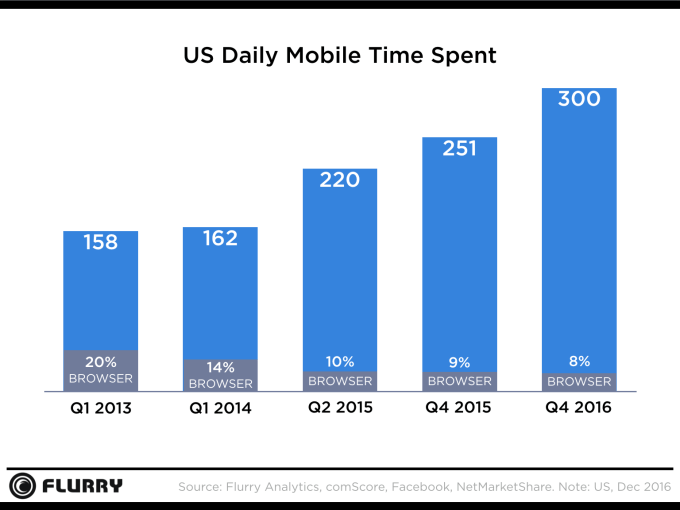F
ollowing its Worldwide Developers Conference, Apple released updated App Store guidelines that included a new rule allowing it to ban apps created by a “commercialized template or app generation service.” The understanding at the time was this was part of Apple’s larger App Store cleanup, and the focus was on helping rid the marketplace of low-quality clone and spam apps. But things have since changed. A number of app-building companies that had earlier believed themselves to be in the clear are now being affected, as well.Many companies have recently been given a January 1, 2018 deadline, after which point any new apps they submit will be rejected by the App Store Review team, they’ve been told by Apple. In the meantime, some have been able to maintain their existing apps, but it’s unclear how long that will last.

Example of Apple’s App Store rejection notices for rule 4.2.6.

Example of Apple’s App Store rejection notices for rule 4.3.
What’s unfortunate about the expanded policy enforcement is that these app makers specifically target the small business market. They build apps for businesses that don’t have the internal resources to build their own apps or can’t afford to hire a custom shop to design a new iOS app from scratch.
Instead, these companies help small businesses like local retailers, restaurants, small fitness studios, nonprofits, churches and other organizations to create an app presence using templates, drag-and-drop wizards and various tools to put together a more basic app that can then be customized further with their own branding and images.
These may not be the most-used apps, to be sure, but for the niche audiences they serve – say, for example, customers of a local pizza place that would rather have its own app rather than paying the fees associated with being on a food ordering platform like Seamless/GrubHub or Uber Eats – they serve a useful purpose.
As one app builder put it, the decision to limit these small businesses’ ability to compete on the App Store is as if a web hosting company said that they would no longer allow web pages built with WordPress templates or those made using website wizards from services like Wix or Squarespace.
Apple’s move, which appears to be blocking a large number of small businesses from the App Store, has now caught the attention of Congress.
In a letter dated December 1, 2017, Congressman Ted W. Lieu (33rd District, California) has asked Apple to reconsider its expanded enforcement of its 4.2.6 and 4.3 guidelines. The former bans the template-based apps while the latter is more of a catch-all for banning spam – a rule Apple is now using if it can’t prove that the app was built using some sort of wizard or drag-and-drop system.
“Recently, I was informed that Apple’s decision to more stringently enforce its policy guidelines regarding design and functionality may result in the wholesale rejection of template-based apps from the App Store,” wrote Lieu. “It is my understanding that many small businesses, research organizations, and religious institutions rely on template apps when they do not possess the resources to develop apps in-house.”
The Congressman suggests that Apple is now casting “too wide a net” in its effort to remove spam and illegitimate apps from the App Store, and is “invalidating apps from longstanding and legitimate developers who pose no threat to the App Store’s integrity.”
Above: Rep. Ted W. Lieu’s letter to Apple
The expansion of the policy has had a dampening effect on the industry that serves these smaller businesses.
One company, Shoutem, already shut down as a result, for instance. (Only a small team remains to support current customers.)
Explained Shoutem CEO Viktor Marohic, the company closed up shop a few weeks ago – a decision he attributes to the change to the App Store guidelines, combined with the challenges of operating a business in this space.
“The 4.2.6 was just a final drop that made us move on a bit faster with that decision [to close],” he said of Shoutem’s closure. “It was also a threat to our enterprise business, since it is hard to predict what Apple might do next. While we understand their intentions, the general approach that they took turned out to be quite unfair to our enterprise customers that actually built fully custom apps on top of our platform and do not share much of the code with other apps built on the platform,” said Marohic.

Another company affected by the rule is ChowNow, which designs apps for restaurants using components that allow them to have their own online ordering systems and loyalty programs.
ChowNow used to be an Apple favorite. In fact, the company was even quoted in Apple’s documentation regarding best practices for Apple Pay because it was one of the first companies to integrate Apple’s payments technology into its app-building platform.
But even ChowNow is being told by Apple that after January 1, things will change for them.

Above: How different can restaurant apps really be? Big brands vs. ChowNow (right)
“There was no way in June [when the guidelines changed] that we would have said, ‘that’s going to target our apps,’” ChowNow CEO Christopher Webb told TechCrunch of how he first reacted to the news. “Apple had told us you aren’t being targeted by this from a quality standpoint. So being hit now under the umbrella of spam is shocking to every quality developer out there and all the good actors.”
Apple’s concern over template-based apps for restaurants, Webb added, also doesn’t make sense because “there’s only so much you can do with apps that perform the same utility – ordering food.”
Pizza apps, for example, will all tend to have photos of pizza, use red in their designs, and offer buttons for pickup and delivery.
In addition, ChowNow’s apps use 100 percent native code, while big brands like Pizza Hut and Domino’s contain web views.
Apple hasn’t sent out any large-scale communication to its developer community about the expanded enforcement of its rules. Instead, all conversations it’s having are one-on-ones with individual businesses. This allows it to more selectively curate its own list of “winners and losers” in terms of which companies will be targeted by the changes.
Not surprisingly, Apple’s partnership with IBM, which involves IBM building template-based apps for enterprise clients, is not impacted by the new rules.
The irony with regard to this situation is that Apple has taken a strong position on net neutrality, arguing that all businesses have the right to an open internet. Wrote Apple’s U.S. Vice President for Public Policy Cynthia Hogan in a letter to the FCC this August:
Broadband providers should not block, throttle, or otherwise discriminate against lawful websites and services. Far from new, this has been a foundational principle of the FCC’s approach to net neutrality for over a decade. Providers of online goods and services need assurance that they will be able to reliably reach their customers without interference from the underlying broadband provider.
However, what Apple’s doing with its expanded ban of templated apps is the equivalent of preventing small businesses from being able to compete in the same ecosystem as the bigger brands. It’s the gatekeeper effectively creating a system that impacts the little guy by interfering with their ability to do business on the web – a web we increasingly access through native apps, not a browser.
According to 2017 data from Flurry, mobile browser usage dropped from 20 percent in 2013 to just 8 percent in 2016, with the rest of our time spent in apps, for example. They are our doorway to the web and the way we interact with services.

“Rule 4.2.6 is a concrete illustration of the danger of Apple’s dominant position,” lamented Jérôme Granados, of Goodbarber – a company that had fortunately invested in progressive web apps ahead of Apple’s changes. “This rule prevents many local newspapers, online media, NGOs, religious communities, sports clubs, local stores, schools, universities, local public administrations, and other actors with limited means, to count among their audience iPhone users,” he told TechCrunch.
Among these businesses’ frustrations is the fact that an App Store cleanup didn’t have to involve the wholesale removal of small businesses’ apps. Apple could have just unlisted apps from category pages to reduce the “clutter,” or only returned the apps in search results when customers type in more exactly matching names.
“We understand the need to clean up the App Store, but we feel Apple could have gone about it in a different way,” noted Bizness Apps CEO Andrew Gazdecki, who is transitioning his clients to progressive web apps, per Apple’s advice.
“We’re concerned that this rejection notice is problematic because what’s being called into question isn’t the quality of the app, but rather the way in which it’s generated,” Gazdecki said. The CEO yesterday set up a Change.org petition to plead with Apple to change its mind. Over 250 signatures have been added, as of the time of writing.
“They’ve wiped out pretty much an entire industry. Not just DIY tools like AppMakr, but also development suites like Titanium,” said Jay Shapiro, CEO of AppMakr, which now builds apps for international markets where Android dominates. (Titanium claims it’s not affected).

Above: The original version of the Official Lumineers app, built by AppMakr
We’ve also heard from one source that the change will affect other companies building apps, including MindBody (apps for fitness studios), eChurch and Custom Church Apps (apps for churches), Olo (apps for restaurants), Hopscotch (games), uCampaign (apps for Republican lawmakers) and others. [Hearing that Hopscotch may not be affected; others haven’t commented.]
“I’m sure that Apple has some business rationale for doing this, but they have just disenfranchised an entire ecosystem and none of us can really understand why,” Shapiro said. “There were much easier ways to fix their perceived problem.”
Apple has not responded to requests for comment.































Comment